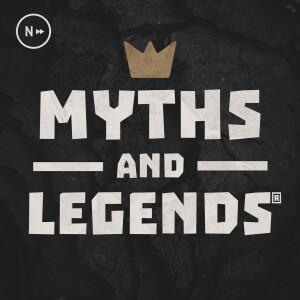

The Drama Unveiled: Exploring the Emotional Landscape of Gifted Children
"The Drama of the Gifted Child" is a book written by Alice Miller, a Swiss psychologist and psychoanalyst. Published in 1979, it explores the psychological consequences and challenges faced by children who grow up in dysfunctional or abusive families.
Miller suggests that gifted or highly intelligent children often face specific challenges due to their sensitivity and ability to perceive and adapt to their parents' needs. These children are asked to repress their own emotions and desires to meet their parents' expectations and maintain harmony in the family.
The book delves into the long-lasting effects of this upbringing, manifesting in adulthood as difficulties with self-esteem, relationships, and personal fulfillment. It argues that the denial of a child's true self leads to hidden anger, depression, and a sense of emptiness that can persist throughout their lives.
Miller emphasizes the importance of understanding and processing these childhood traumas and encourages readers to confront and heal from their past in order to lead more authentic and fulfilling lives. She also criticizes traditional psychotherapy approaches that focus on blame or pathologizing the child, instead advocating for a compassionate and empathetic approach.
Overall, "The Drama of the Gifted Child" sheds light on the psychological dynamics within dysfunctional families and offers insight into the challenges faced by gifted children, while providing guidance on how to heal and reclaim one's true self.
Chapter 2:Author of The Drama Of The Gifted ChildAlice Miller was a renowned Swiss psychologist and author who gained international recognition for her groundbreaking work on child psychology and the effects of childhood trauma. Born on January 12, 1923, in Poland, Miller grew up in an affluent Jewish family and witnessed firsthand the rise of Nazi Germany.
After earning her medical degree in Switzerland, Miller delved into the field of psychoanalysis and began questioning the traditional methods and theories employed by Sigmund Freud and his followers. She became an advocate for compassionate and empathetic approaches to working with individuals, especially children, who had experienced emotional or physical abuse.
Miller's most famous work, "The Drama of the Gifted Child," first published in 1979, examines the impact of parental neglect and mistreatment on children's emotional development. In the book, she argues that excessively high expectations, praise, or demands placed on children can lead to emotional suppression and a loss of their true self.
One of Miller's key concepts is the "drama" that gifted children experience, referring to the internal conflicts and struggles they face while attempting to meet unrealistic parental expectations. She emphasizes the importance of acknowledging and addressing these unresolved issues later in life to break the cycle of emotional pain and abuse.
Throughout her career, Alice Miller published numerous books, including "For Your Own Good: Hidden Cruelty in Child-Rearing and the Roots of Violence" and "Thou Shalt Not Be Aware: Society's Betrayal of the Child." Her work challenged societal norms and shed light on the long-term consequences of repressed childhood trauma.
Alice Miller's contributions to the field of psychology and her relentless pursuit of truth and healing have had a profound influence on therapists, researchers, and advocates for child welfare. She passed away on April 14, 2010, but her legacy continues to inspire and shape our understanding of childhood trauma and emotional well-being.
Chapter 3:why is The Drama Of The Gifted Child worth reading- Groundbreaking work: This book was groundbreaking when it was first published in 1979 and remains highly influential today. Miller challenges traditional psychological theories that blame the child for their psychological problems and instead focuses on the impact of childhood trauma and emotional neglect on an individual's development.
- Insights into childhood trauma: Miller explores how childhood emotional abuse and neglect can shape a person's emotional and psychological development. She discusses the impact of parents who are unable to provide emotional support, leading to a legacy of emotional pain and self-destructive patterns in adulthood.
- Personal and relatable narratives: Miller uses real-life examples and case studies to illustrate her theories. These narratives allow readers to connect with the experiences of the individuals she describes, making it a relatable and emotionally engaging read.
- Empowerment and healing: Throughout the book, Miller emphasizes the importance of self-reflection and breaking free from destructive patterns learned in childhood. She offers insights and strategies to help readers understand and heal from their own childhood wounds, ultimately promoting personal growth and empowerment.
- Continuing relevance: Despite being published over 40 years ago, "The Drama of the Gifted Child" is still highly relevant in today's understanding of childhood trauma and its impact on adult life. It remains a valuable resource for individuals, mental health professionals, and anyone interested in understanding the long-lasting effects of early emotional trauma.
Overall, "The Drama of the Gifted Child" is worth reading due to its groundbreaking insights, relatable narratives, emphasis on healing and empowerment, and continued relevance in understanding childhood trauma.
Chapter 4: Books like The Drama Of The Gifted Child- "Understanding the Borderline Mother: Helping Her Children Transcend the Intense, Unpredictable, and Volatile Relationship" by Christine Ann Lawson
- "The Narcissistic Family: Diagnosis and Treatment" by Stephanie Donaldson-Pressman and Robert M. Pressman
- "Toxic Parents: Overcoming Their Hurtful Legacy and Reclaiming Your Life" by Susan Forward and Craig Buck
- "Running on Empty: Overcome Your Childhood Emotional Neglect" by Jonice Webb
- "The Body Keeps the Score: Brain, Mind, and Body in the Healing of Trauma" by Bessel van der Kolk
- "Adult Children of Emotionally Immature Parents: How to Heal from Distant, Rejecting, or Self-Involved Parents" by Lindsay C. Gibson
- "Will I Ever Be Good Enough?: Healing the Daughters of Narcissistic Mothers" by Karyl McBride
- "The Drama of Being a Child: The Search for the True Self" by Gitta Jacob and Alice Miller
- "Children of the Self-Absorbed: A Grown-Up's Guide to Getting Over Narcissistic Parents" by Nina W. Brown
- "The Emotionally Absent Mother: A Guide to Self-Healing and Getting the Love You Missed" by Jasmin Lee Cori
More Episodes
All Episodes>>Create Your Podcast In Minutes
- Full-featured podcast site
- Unlimited storage and bandwidth
- Comprehensive podcast stats
- Distribute to Apple Podcasts, Spotify, and more
- Make money with your podcast












